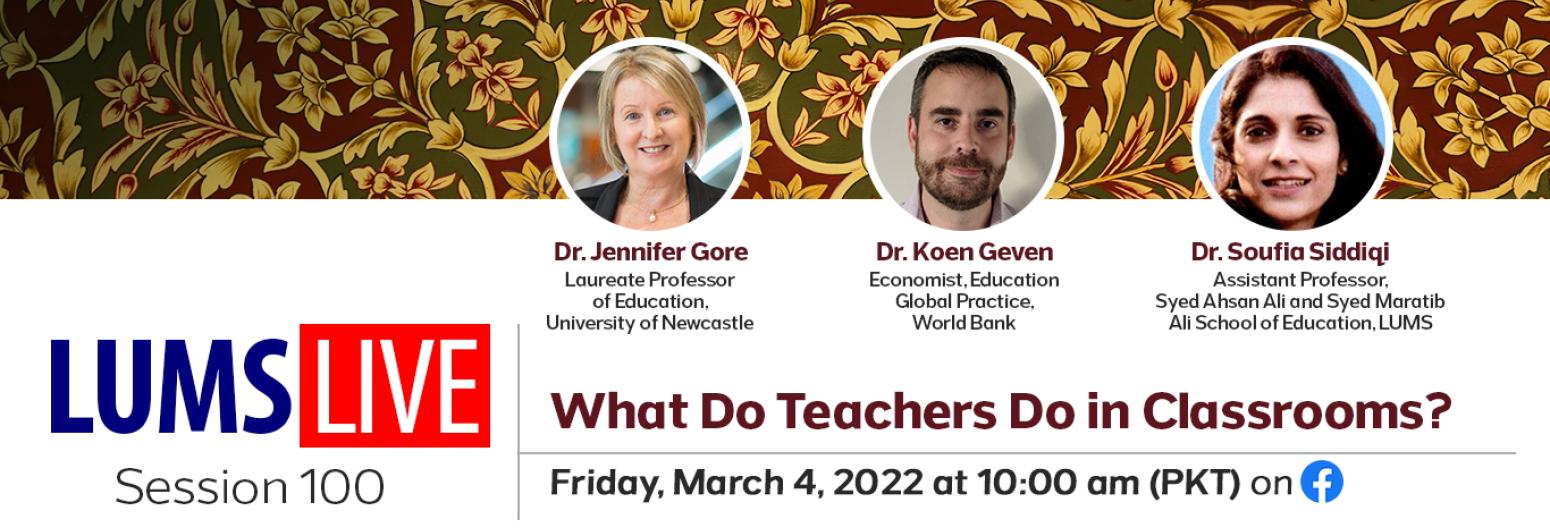
March 4, 2022
With over 50 million students in school and at least 20 million out of it, catering effectively to Pakistan’s student learning needs place a significant demand on its teachers. To date, however, the country experiences a persistent teacher shortage supply – both in quantity, but especially in terms of quality. For instance, rural public schools in some parts of the country are staffed with one or no teacher, and some areas are challenged to find local teachers with even 10 years of educational qualification.
Additionally, Pakistan’s student needs are diverse. Students learn differently, experience a variety of family and personal life circumstances, speak a multitude of mother tongues and are often at the receiving end of their family’s displaced fortunes. Who is the right teacher for such students, and can uniform policy expressions cater to such specific learning requirements in the country’s schools?
This session asks panelists to consider what it means to be a teacher today, in a pandemic-informed world with many levels of socio-economic, cultural and learning complexities shaping pedagogic choices. What are some successful traits of good teaching, particularly in diverse and resource-constrained environments? How do we capture what happens in the classroom and use such knowledge to improve our teachers’ everyday practice?
Date: March 4, 2022
Time: 10:00 am
Venue: Facebook Live
Hosted in collaboration with the Syed Ahsan Ali and Syed Maratib Ali School of Education and the Mahbub ul Haq Research Centre (MHRC), the session will be moderated by Dr. Soufia Siddiqi.
Join us for this interesting conversation!
About the Panelists
Dr. Jennifer Gore
Dr. Gore was formerly the Dean of Education and Head of School for six years at the University of Newcastle. In November 2017, she was named the University of Newcastle’s first female Laureate Professor and first Laureate in the humanities and social sciences. She has been Director of the Teachers and Teaching Research Centre since its inauguration in 2013 and has recently completed a four-year term as Editor of the international journal, Teaching and Teacher Education (Elsevier). She has led numerous large-scale studies using a wide range of methodological approaches and theoretical perspectives and has won more than AUD 23.7 million in research funding including 10 grants awarded by the Australian Research Council. Widely published and cited (more than 9,800 citations), Dr. Gore’s educational and research interests consistently centre on quality and equity.
Dr. Koen Geven
Dr. Geven primarily works on South Asia at the World Bank. His research focuses on the dynamics between inequality, public policy, and education. He is also interested in research on the measurement of learning crisis and its causes. He holds a PhD in Social and Political Science from the European University Institute.
Dr. Soufia Siddiqi
As part of the faculty at the School of Education, Dr. Siddiqi specialises in qualitative research methods as well as education policy and curriculum design. On the implementation side, she applies design ethnography, process mapping, and data to understanding what makes policy decisions tick (or not). Previously, Dr. Siddiqi was Technical Advisor to the School Education Department, Punjab and a member of the Punjab Examination Commission, where she led the Technical Committee for the province’s 2019 Assessment Policy Framework. Dr. Siddiqi was Pakistan’s 2010 Rhodes Scholar to the University of Oxford, where she completed a PhD in Education and an MSc in Comparative and International Education from St. Anne’s College.



















